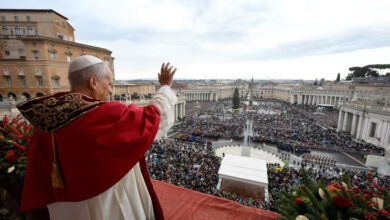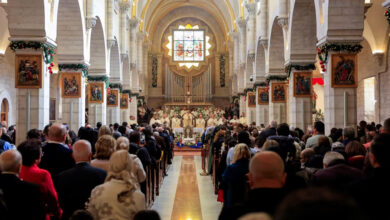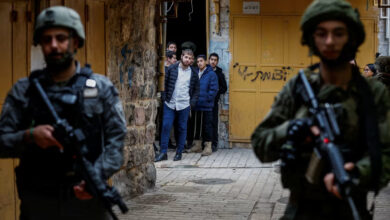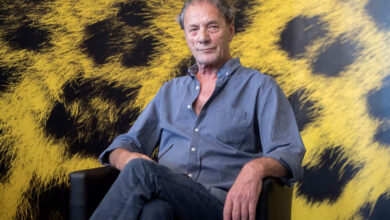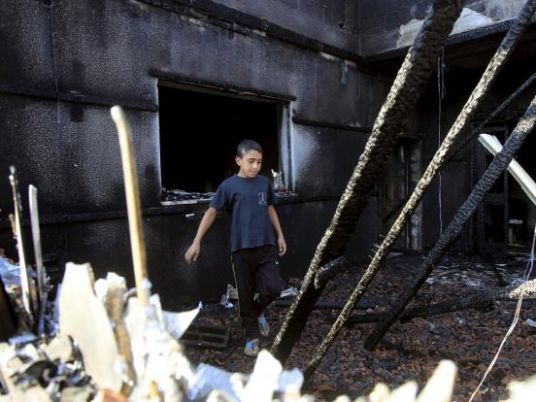
Suspected Jewish attackers torched a Palestinian home in the occupied West Bank on Friday, killing an 18-month-old toddler and seriously injuring three other family members, an act that Israel's prime minister described as terrorism.
The house in Duma, a village near the city of Nablus, had its windows smashed and fire bombs thrown inside shortly before dawn as the family slept, the military and witnesses said. Graffiti in Hebrew reading "revenge" was scrawled outside.
Both the child's parents and his four-year-old brother were badly hurt. They were taken by helicopter for treatment in an Israeli hospital, officials said. A second house in the village was also set ablaze, but no one was at home.
This would be the worst attack by Israeli assailants since a Palestinian teenager was torched to death in Jerusalem a year ago. That followed the kidnapping and killing of three Israeli teenagers by Palestinian militants in the West Bank.
The Israeli military boosted forces in the area to search for the suspects, described by a spokesman as "two masked terrorists", and prevent any escalation in violence. The Palestinian Islamist group Hamas called for revenge.
Ibrahim Dawabsheh, a Duma resident, said he heard people shouting for help from the house and rushed to it. "I saw two masked men outside," he told Reuters. He went to get help and when he returned they had gone.
"We found the parents outside with burns, they said there was another son in the house. We brought him out and then they said there was another boy inside, but we couldn't reach the bedroom because of the fire. He was left inside until rescue forces came," Dawabsheh told Reuters.
Pictures circulated by Palestinian media on the Internet showed a smiling, chubby-faced boy, named as Ali Dawabsheh. Footage from the house showed blackened walls and singed family photos scattered across charred belongings.
Israeli Prime Minister Benjamin Netanyahu said he was shocked and promised that "all means" would be used to bring the assailants to justice. "This is a terrorist attack. Israel takes firm action against terrorism, no matter who its perpetrators are," he said.
Part of Netanyahu's right-wing coalition is the ultranationalist Jewish Home party, which advocates more settlements and settler rights in the West Bank. Jewish Home leader Naftali Bennett was quick to denounce the attack, but
Palestinians accused the party of laying the ground for it.
Israeli military spokesman Lieutenant-Colonel Peter Lerner said an investigation was underway and called the arson
"nothing short of a barbaric act of terrorism".
A spokesman for Palestinian President Mahmoud Abbas held Israel responsible. "Such a crime would not have occurred if the Israeli government did not insist on pursuing settlements and protecting settlers," Nabil Abu Rdainah said.
"Price tag"
Hamas spokesman Hussam Badran called for retribution. "This crime has made occupation soldiers and settlers everywhere legitimate targets," he said.
Fearing the killing would provoke violence in Jerusalem, police restricted entrance to al-Aqsa mosque for Friday prayers to men over the age of 50 and to women. Police increased their presence in areas where stone-throwing clashes often occur.
Israeli Police spokeswoman Luba Samri said the torching was an apparent "Price Tag" attack, a reference to militant settlers who threaten to exact retribution for any Israeli government curbs on settlement expansion in the West Bank.
Israel tore down two illegal structures in the Beit El settlement near Ramallah and removed dozens of people from another settlement near Nablus on Wednesday, prompting protests.
The "Price Tag" group has been blamed for torching a number of mosques in the West Bank in recent years. Those attacks caused widespread damage but no casualties.
Though Israel has promised to crack down on such assailants only a handful of indictments have been handed down.
The Palestinians seek a state in the West Bank, East Jerusalem and the Gaza Strip. In the West Bank, they have limited self rule but nearly 60 percent of the territory remains under the full control of the Israeli military.
Israeli settlements are considered illegal under international law. The last round of U.S.-brokered peace talks between Israel and the Palestinians broke down in 2014.

